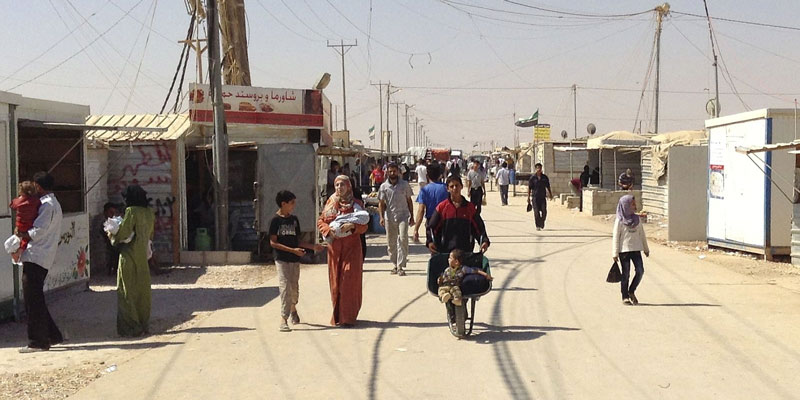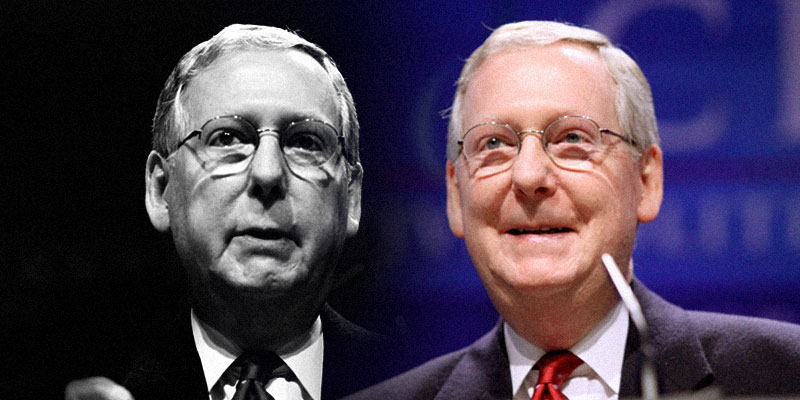
Refugee admissions to the United States were down 83 percent in the first two months of fiscal 2018 (October and November) compared to the first two months of fiscal 2017.
A total of only 3,108 refugees were admitted in October and November down from the 18,300 refugees who were admitted in October and November of last year.
Meanwhile, fourteen months after the Obama administration backed a push at the U.N. for global responsibility-sharing for refugees and migrants, the Trump Administration has pulled out of the initiative. U.S. Ambassador to the U.N. Nikki Haley said it “is simply not compatible with U.S. sovereignty.”
The weekend announcement comes amid a sharp drop in the number of refugees admitted to the United States during the first two months of fiscal year 2018.
The most striking change between the refugee admissions in the initial two-month period of this fiscal year and last fiscal year was the relative differences in size of the contingents from Syria, Somalia and Iraq.
In Oct.-Nov. 2016, 2,259 Syrians (97.6 percent Muslim, 1.7 percent Christian), 2,463 Somalis (99.9 percent Muslim) and 2,262 Iraqis (75 percent Muslim, 17.3 percent Christian, 7.4 percent Yazidi) were resettled.

In Oct.-Nov. 2017 the numbers had dropped to 33 Syrians (66.6 percent Muslim, 33.3 percent Christian), 126 Somalis (100 percent Muslim) and 76 Iraqis (84.2 percent Muslim, 10.5 percent Christian, 3.9 percent Yazidi).
Among the 3,108 refugees admitted since FY 2018 began, the five largest contingents came from Bhutan (805), the Democratic Republic of Congo (627), Burma (347), Ukraine (290) and Eritrea (281).
The religious breakdown of those 3,108 refugees was: 59.6 percent Christian, 15.4 percent Muslim, 9.6 percent Buddhist, 7.6 percent Hindu, 4.7 percent Kirat and 0.9 percent Jewish.
By contrast, the five countries represented most strongly among the 18,300 refugees resettled by the Obama administration in the U.S. during the first two months of FY 2017 were the DRC (4,236), Somalia (2,463), Iraq (2,262), Syria (2,259) and Burma (1,509).

The religious breakdown of those 18,300 refugees was: 48.1 percent Christian, 43.6 percent Muslim, 2.4 percent Buddhist, 1.7 percent Hindu, 0.9 percent Kirat and 0.3 percent Jewish.
The figures reflect clearly the differences in the two administrations’ approach on refugees.
The last full fiscal year of the Obama administration saw 84,994 refugees admitted. President Trump has proposed a refugee admission ceiling of 45,000 for FY 2018, the lowest ceiling set by an administration since the Refugee Act was passed in 1980.
Now the administration is also withdrawing from a U.N. initiative called the Global Compact on Migration.
In a statement Sunday, Secretary of State Rex Tillerson said the U.S. would continue to engage at the U.N. but in this case it “simply cannot in good faith support a process that could undermine the sovereign right of the United States to enforce our immigration laws and secure our borders.”
“The United States supports international cooperation on migration issues, but it is the primary responsibility of sovereign states to help ensure that migration is safe, orderly, and legal.”
In September last year, a summit at the U.N. adopted a consensus declaration – the New York Declaration for Refugees and Migrants – expressing countries’ political will to protect the rights of refugees and migrants and share the responsibility for doing so.
Although they stopped short of making any binding commitments, the leaders undertook to work by 2018 towards consensus on a global compact on sharing the refugee burden.
Haley said Sunday the New York declaration “contains numerous provisions that are inconsistent with U.S. immigration and refugee policies and the Trump administration’s immigration principles.”
She said no country has done more that the U.S. in providing support for migrant and refugee populations across the globe, “and our generosity will continue.”
“But our decisions on immigration policies must always be made by Americans and Americans alone,” she said. “We will decide how best to control our borders and who will be allowed to enter our country.”
Miroslav Laják, the president of the U.N. General Assembly – who received the formal notification of withdrawal – said he regretted the decision.
“The role of the United States in this process is critical as it has historically and generously welcomed people from all across the globe and remains home to the largest number of international migrants in the world,” the Slovak diplomat said in a statement released by his spokesman on Sunday.
“As such, it has the experience and expertise to help ensure that this process leads to a successful outcome.”
The U.S. withdrawal from the initiative came on the eve of a three-day global gathering beginning in Mexico on Monday to take stock of how and where the process is going.
(Courtesy of CNSNews.com)












